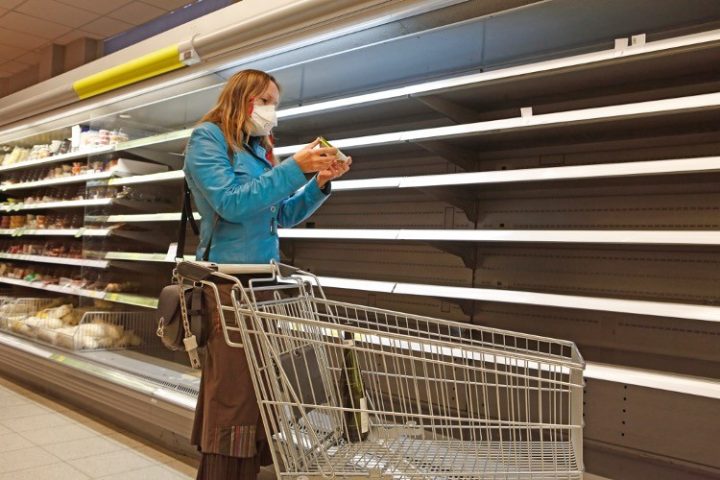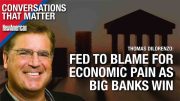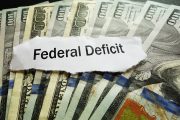
On Tuesday, The Washington Post published an article entitled “Don’t Rant About Short-staffed Stores and Supply Chain Woes” that berated American customers for being too demanding and called upon them to lower their expectations on the economy.
The author, Micheline Maynard, opened her piece by thrashing the capitalist system for its focus on efficiency that made customers “spoiled.” The system, she claims, has another fatal flaw: It does not take into account such global crises as pandemics that cause havoc for global supply chains and disrupt the normal functioning of the economy. “Time for some new, more realistic expectations,” Maynard said.
Maynard did not reflect on the issue of COVID being widely used as a pretext to impose inadequately harsh restrictions on businesses that caused the current economic disruptions. Instead, she blamed Americans for their inflated appetites.
Citing Amanda Mull’s argument that “For generations, American customers have been trained to be nightmares,” Maynard stated:
Rather than living constantly on the verge of throwing a fit, and risking taking it out on overwhelmed servers, struggling shop owners or late-arriving delivery people, we’d do ourselves a favor by consciously lowering expectations.
The columnist went on to cite such “inconveniences” as prolonged times for restaurant deliveries, shortages of paper cups used in coffee shops, and paper supply shortages that put the publishing of her upcoming book at risk. Maynard signaled she was facing those “challenges” stoically and encouraged all Americans to do the same and “hope for the best.”
While inconvenience in waiting for your restaurant food longer than usual seems like an issue worth mentioning to Maynard, regular Americans are facing a rapidly shrinking supply of basic food, such as bread, poultry, meat, pasta, canned food, bottled water, juices, and carbonated drinks, to name a few. Considering that “overconsumption” is a phenomenon most affecting large cities, Maynard addressed, presumably, those “progressives” populating the cities who may be easily imagined to be “throwing a fit” over coffee cups.
While the situation is unpleasant, the supply chain will “eventually will get straightened out,” Maynard claimed. That “eventually” may not happen until sometime next year, according to the Biden administration’s Transportation Secretary Pete Buttigieg, who echoed Maynard’s claim that it was the customers who caused the supply shortages.
Similarly, White House Press Secretary Jen Psaki implied the supply chain disruptions are a “high class” problem and joked about the “tragedy” of treadmills not getting delivered in a timely fashion.
Maynard concluded that “American consumers might have been spoiled, but generations of them have also dealt with shortages of some kind…. Now it’s our turn to make adjustments.”
Critics were quick to excoriate the piece on social media.
“When your family is hungry, your business is going under, and the bread lines are starting to form, just remember Maynard’s words about ‘making adjustments’!” suggested Christian satirical site Not the Bee.
Many of the reactions implied that lowering expectations was “becoming the theme of Joe Biden’s America,” while others compared the acceptance of empty store shelves to living in the former Soviet Union, where shortages in consumer goods was commonplace. Vice President of State Projects at the Tax Foundation Jared Walczak posted that “passive acceptance” of the supply crisis is mistaken.
Media outlets such as this one have aggregated some of the “blue-tick” reactions to the piece on Twitter.
While some of the commentators joked about the corporate media urging Americans to “accept the bread lines” that are “not that bad,” there is a possibility that severe food shortages could at some point become a reality.
In a recent report, Moody’s Analytics warned that a range of factors have created conditions where food and other essential goods could soon be in very short supply.
The report reads:
Border controls and mobility restrictions … and pent-up demand from being stuck at home have combined for a perfect storm where global production will be hampered because deliveries are not made in time, costs and prices will rise and GDP growth worldwide will not be as robust as a result.
In the United States, the workforce shortages were exacerbated by Biden’s stimulus payments that contributed to workers staying out of work long after the lockdowns were rescinded in most areas.
Back in April 2020, the United Nations “foresaw” the supply-chain disruptions that would cause a global “famine of biblical proportions.”
The World Bank posted in August that an “increasing number of countries are facing growing levels of acute food insecurity, reversing years of development gains.”
What would be an appropriate policy to address the issue? Producing more food, of course. But the Biden administration is actually doing the opposite: In April, it announced it would expand a program that pays farmers to leave land fallow as part of a broader, government-wide effort to cut greenhouse gas emissions in half by 2030. “Sometimes the best solutions are right in front of you,” said Agriculture Secretary Tom Vilsack at the time.
In June, “in a rare bipartisan move,” the Senate approved a program that encourages farmers to grow “carbon-capturing” crops that remove carbon dioxide from the air and divert it into the soil in a “push to turn American farmland into a massive carbon sponge,” per Politico.
In that troubling and uncertain situation, you may either follow the advice of The Washington Post and make “reasonable adjustments” to your everyday life or readjust the political elites that are creating the perpetual crisis.




